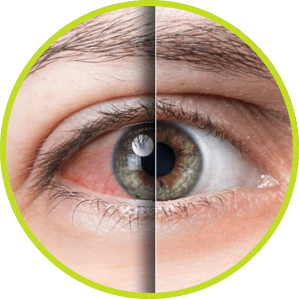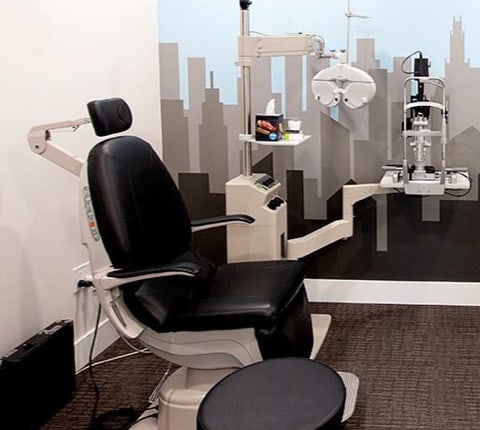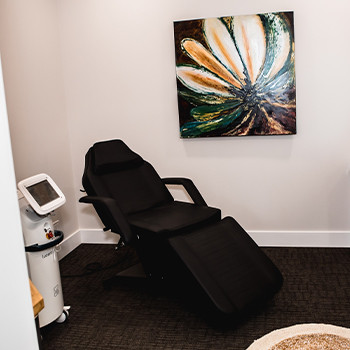Diabetes is a disease that not only affects lifestyle but also affects vision. It is estimated that right now, over 3 million Canadians have diabetes. It is also important to note that diabetes is the leading cause of blindness in the working population in North America.
When people are first diagnosed with diabetes, vision problems are rarely their first concern and the health of their eyes often gets forgotten. Those with diabetes are at a higher risk for blindness, cataracts and double vision. With diabetes, none of these eye symptoms will cause pain.
This can be a complicated question to answer, but I’ll do my best to simplify things a bit. Diabetes is a disease that not only affects the sugar levels in the blood, but also changes the integrity of the blood vessels themselves, especially those found in the eye. This can cause the vessels to leak tiny amounts of blood into the surrounding tissue. Increased blood sugar levels can also cause changes to the biochemical makeup of the tissues in the eyes.
Below is a list of eye complications that can happen because of diabetes:
Diabetic retinopathy
When leakage happens in the delicate light-sensitive part of the eye (the retina), this is called diabetic retinopathy. Diabetic retinopathy is what causes most of the blindness associated with diabetes and as such, this is also the most worrisome. Blood leakage into the retina can lead to swelling and damage to the tissue, not to mention blurriness and loss of vision. There will never be pain with this type of tissue damage.
When tiny bleeds begin to happen, people do not notice a change in vision. It is only after significant leakage happens that people notice the blurred vision. When the blur is noticeable it becomes more difficult to repair the damage that has been done. At this point, surgery is often required to restore vision. The surgery will usually be an injection of medication into the eye and often a laser treatment.
Cataracts
People with diabetes are also more at risk for developing cataracts. Not only are they more prone to cataracts, but they are also more at risk for developing cataracts earlier in life.
Prescription shifts
Diabetic patients, especially those who are newly diagnosed, are prone to have fluctuations in their glasses prescriptions and therefore may experience fluctuations in their vision. Some days will be blurry while other days will be clear. As the blood sugar levels stabilize with whatever treatment your family doctor recommends, these vision fluctuations should also stabilize.
Other problems
Occasionally the muscles that are in charge of moving our eyes can be affected by diabetes. In these cases, the muscles stop working the way they need to and people will notice temporary double vision.
Rarely, if blood sugar levels are not under control, a certain type of glaucoma can develop. It is caused by new blood vessels growing in the iris (the front coloured part of the eye) that block the inner liquid drainage system of the eye. This blockage leads to increased pressure in the eyes.
Having diabetes also reduces the body’s ability to heal. This is true even for the eyes. If infections or damage happens to the eyes, it can take much longer for the eyes to heal. For this reason, people who have diabetes are not good candidates for LASIK or other eye surgeries that do the same thing. Even contact lenses can sometimes be discouraged depending on the person’s individual situation.
How can these problems be avoided?
There are 3 easy ways to avoid these problems:
Keep good control of your blood sugars
If the blood sugars are well controlled, the chances of having the above problems happen are much much less. Be sure to follow the recommendations of your family doctor.
If you have diabetes, you need an annual dilated eye health examination
(separate from your regular eye examinations). We do this type of exam routinely. During these visits, your pupils will be dilated to thoroughly check the back inside the lining of each eye. We will not be checking the glasses prescription. Alberta Health Care covers the cost of these annual health checks for people with diabetes, no matter their age. Getting your eyes checked regularly, even if your vision feels fine, will allow for even the smallest of problems to be detected early. After these examinations, a report will be sent to your family doctor informing them of the findings.
If you notice ANY change to your vision, visit us as soon as possible
There have been many instances when people have noticed changes, but have delayed a visit to their optometrist. The longer people wait, the more difficult it is for the problem to be fixed.
If you have any questions about how diabetes can affect the eyes, or if you have concerns about your eye health, please contact our office.


































